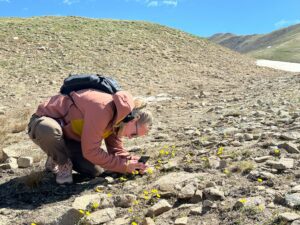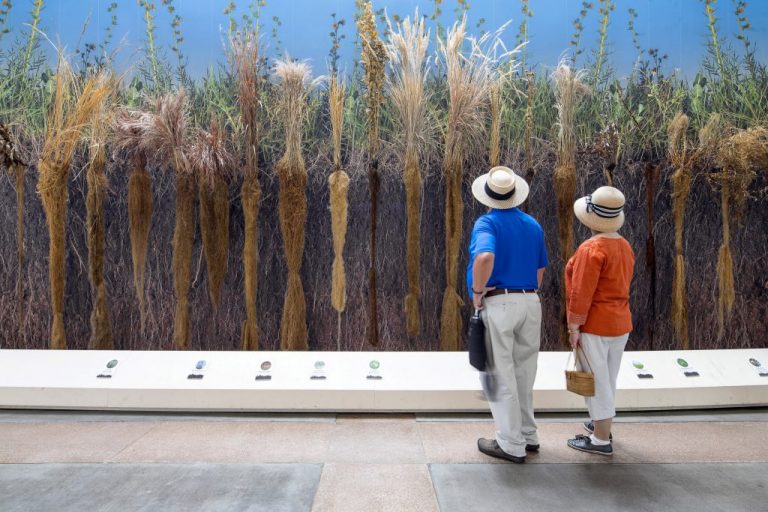Betty Ford Alpine Gardens Receives Prestigious Accreditation from
Botanic Gardens Conservation International.
Accreditation validates institution’s commitment to alpine conservation.

-
https://www.facebook.com/BettyFordAlpineGardensFacebook
-
https://twitter.com/
-
https://www.pinterest.com/bettyfordgarden/rest
Betty Ford Alpine Gardens is pleased to announce that it has received Botanic Garden Accreditation from Botanic Gardens Conservation International (BGCI), a non-profit based in the United Kingdom. By linking botanic gardens around the world in a global network for plant conservation, BGCI supports and empowers its members and the wider conservation community in a comprehensive effort to reverse the threat of extinction facing plants.
To be accredited as a BGCI Botanic Garden, institutions must show how they carry out a range of conservation-related policies, practices and activities, something Betty Ford Alpine Gardens
has been highly focused on for the last decade. In fact, plant collection policies, standards of horticultural practice, quality of interpretive exhibitions, and public outreach have been part of the Gardens mission and vision since its inception in 1985.
Located at 8,200 feet high in the Rocky Mountains, Betty Ford Alpine Gardens is uniquely positioned to spearhead an effort to conserve fragile mountain environments and, as a result of this accreditation, the Gardens is able to rigorously pursue conservation and sustainability activities to focus on site-specific conservation, sustainability and ethical actions, including public engagement, training, research, ex situ conservation, in situ conservation and policy related activities.
“Plant conservation is an integral part of Betty Ford Alpine Gardens,” says Nicola Ripley, Executive Director of the Gardens. “Our goal is to educate visitors about the deterioration of plant biodiversity around the world and particularly the vulnerability of the world’s high alpine flora.”


-
https://www.facebook.com/BettyFordAlpineGardensFacebook
-
https://twitter.com/
-
https://www.pinterest.com/bettyfordgarden/rest
Typically, activities that botanic gardens do uniquely well – such as documenting, understanding, growing and conserving plant diversity – are not sufficiently recognized by policymakers and funders. The purpose of the BGCI Botanic Garden Accreditation is to help botanic gardens raise their respective profiles as stand-alone institutions whose values and activities are decidedly different from other nature-based settings such as public parks. Competing organizations are assessed on criteria encompassing leadership, collections management, horticulture, public education, community/cultural activities, conservation actions, scientific research, staff, networking and sustainability.
Earning accreditation from BGCI is a tremendous honor, says Ripley, because it reflects the organization’s dedication and commitment to biodiversity and the protection of alpine environments. “It’s not good enough to say ‘yes, we have a conservation program,’” she says. “This honor validates why it exists and how we are activating these ideas for the future. It’s a big deal for a small garden in rural western Colorado.”





